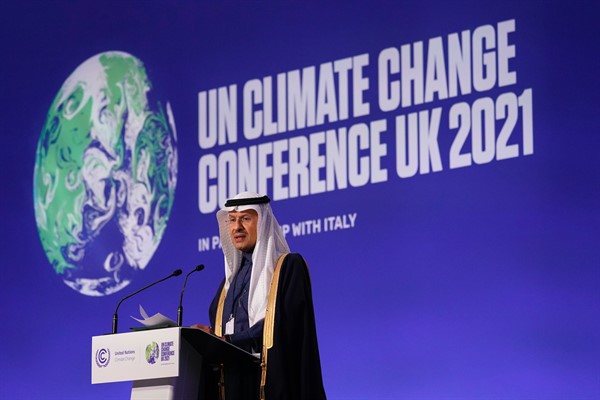The COP26 climate change conference in Glasgow that wrapped up Saturday was intended to draw the world’s attention to the slow-burning emergency of global warming, as well as create policies for mitigating and adapting to its worst effects. Above all, however, the international gathering illustrated the problems of timing and collective action that frustrate efforts to stop climate change.
At the summit, world leaders, scientists and activists called for urgent action to reduce emissions and slow the rise in average global temperatures before the world crosses a threshold into an unlivable future. Instead, the conference delegates drafted what amounts to a series of strategy statements, with lofty goals but only a few specific targets. Taken together, the Paris Agreement and COP26 have done important, but only incremental, work to reduce hydrocarbon emissions.
When it comes to tackling climate change, the Middle East represents a more extreme version of the collective action problems on display in Glasgow. The Middle East’s climate challenges require both immediate emergency interventions and long-term strategic plans, as well as transnational collaboration at levels that are currently inconceivable given the sharp political divisions within and between the countries in the region. In short, the Middle East’s politics simply cannot, at present, address a slow-moving transnational crisis like climate change, even though it affects everyone in the region.

